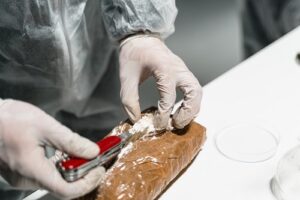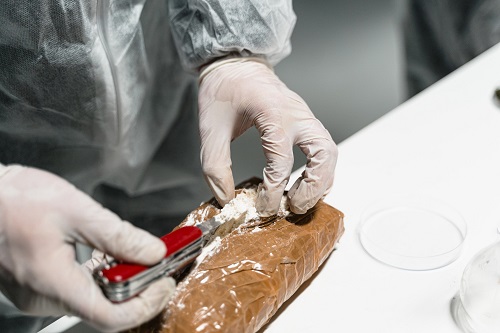By: Seringe ST Touray

A growing number of arrests and seizures of illegal drugs continue to sound alarm bells about the rise of illegal drug importation and a correlated rise in their consumption by Gambians. Cocaine, synthetic marijuana, and MDMA (also known locally as Gaaw) – a recreational hallucinogenic drug which also comes in other forms called ecstasy or molly – have all become more and more accessible on our streets and around recreational environments such as nightclubs.
Depending on the type of narcotics, drug smugglers take their chances by illegally importing the deleterious substances by sea, air, or land. Whereas cocaine is more commonly smuggled into The Gambia by sea or by land through our borders, MDMA (aka Ecstasy/Molly/Gaaw), which is usually produced in crystalized or pill form, is smuggled primarily by air, and in many cases from Europe into The Gambia.
Reasons behind first-time recreational drug use are linked to curiosity, bad influence, a desire to experience a euphoric rush (a high) or ingesting the drugs as a form of escapism from real-life difficulties. However, according to the National Institute of Drug Abuse (USA), “drug use can start as a way to escape – but it can quickly make your life worse.” With repeated use, hard drugs like cocaine and MDMA could lead to addiction or dependency, both of which are associated with anxiety, depression, and other harmful mental health concerns which could in turn instigate a dysfunctional life.
Moreover, synthetic marijuana – a marijuana alternative which is composed of manmade chemicals which are found to be “toxic,” has been associated with adverse health effects which include a “rapid heart rate, vomiting, agitation, confusion, and hallucinations” according to the CDC.
For many years, the Drug Law Enforcement Agency of The Gambia (DLEAG) has engaged in efforts meant to quell the importation and dealing of drugs in our country; but, while law enforcement continues to do its part in bringing dealers to justice, concerns could be raised on whether or not our health sector has the capacity to address what is quickly turning into an illegal drug epidemic, in terms of offering guidance, counselling, and even rehabilitation for any drug user who has developed addiction, dependency, or other negative health effects of illicit drugs.
According to research published by the National Institutes of Health (2022), it is estimated that “about 120,000 of the population are affected by mental illness, but 90% of these people do not access mental health services for their conditions.” Currently, only one psychiatric hospital exists – the Tanka Tanka Psychiatric Hospital which runs as an in-patient unit under RVTH, and one psychiatric outpatient clinic, serving the entire population.
The Fatu Network reached out to Mr Kebba Sanneh, the Principal Public Relations Officer at RVTH, for any comment about the public/mental health issues posed by the inflow of illicit drugs, and about any efforts being made by the Tanka Tanka mental health facility. So far, we are yet to receive any information to that effect.
According to an official DLEAG press release on August 1 2023, however, the agency put out that it “would like to reassure Gambians of its commitment to the fight against transnational drug trafficking and are determined to hold drug dealers criminally accountable.”




